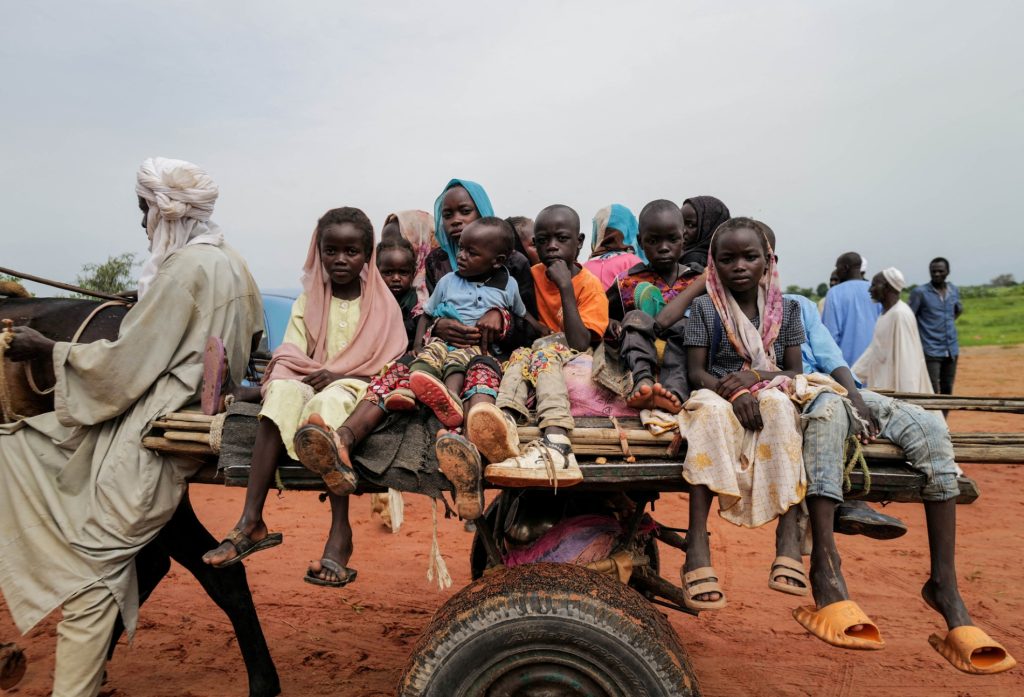Senior international officials gathered in London on Tuesday in a renewed bid to find a pathway to peace in Sudan, as the country marked two years of devastating civil war. Notably absent from the conference were the rival Sudanese factions locked in the brutal conflict.
The war, which erupted on 15 April 2023 between Sudan’s regular army and the paramilitary Rapid Support Forces (RSF), has been dubbed the “forgotten war”. It has triggered what the United Nations now describes as the world’s worst hunger and displacement crisis, with fears growing that the violence could spread across the Horn of Africa.
“This conference will bring together the international community to agree a pathway to end the suffering,” said UK Foreign Secretary David Lammy, who hosted representatives from dozens of countries and organisations. “Instability must not spread — it drives migration and threatens regional and global security.”
The statistics paint a grim picture. More than 13 million people have been forced to flee their homes and tens of thousands have lost their lives. The United States has accused both sides of committing atrocities.

The impact on children has been catastrophic, according to UNICEF executive director Catherine Russell. She said the war has “shattered the lives of millions” and cited a sharp rise in child casualties — from 150 in 2022 to at least 2,776 over the past two years. A UN-backed report also warned that famine has now taken hold in parts of the country.
Britain announced a new aid package worth £120 million to support those affected, while Germany pledged €125 million and France committed €50 million. In total, over 30 million people in Sudan are in urgent need of humanitarian assistance, including 12 million women and girls at risk of gender-based violence.
Despite its scale, the crisis has attracted limited global attention. “The brutal war in Sudan has devastated the lives of millions, and yet much of the world continues to look away,” Lammy said.
The talks were co-hosted by the UK, Germany, France, the EU, and the African Union, with ministers from the US, Saudi Arabia, and around a dozen other nations in attendance. However, Sudan’s government has criticised the event, saying it was not invited.
In a letter to Lammy earlier this month, Sudanese Foreign Minister Ali Youssef accused the UK of equating the RSF with the legitimate Sudanese state. However, Germany’s Foreign Ministry said both sides had shown no willingness to engage in peace negotiations.
German Foreign Minister Annalena Baerbock described the situation as “the greatest humanitarian catastrophe of our time,” while French Minister Jean-Noel Barrot urged all parties to agree to an immediate ceasefire.
The International Committee of the Red Cross warned that civilians are caught in a “relentless nightmare of death and destruction”, urging both sides to honour previous commitments and protect non-combatants.
The conflict has effectively split Sudan in two. The army, led by General Abdel Fattah al-Burhan, recently regained control of the capital Khartoum and holds much of the east and north. Meanwhile, the RSF, commanded by Mohamed Hamdan Daglo, controls most of Darfur and parts of the south.
The power struggle dates back to the fallout from a 2021 coup, which removed the transitional government formed after the 2019 ousting of longtime dictator Omar al-Bashir.
African Union commissioner Bankole Adeoye called for inclusive peace efforts, while UN Secretary-General António Guterres warned that external actors fuelling the war with weapons must be stopped. “The external support and flow of weapons must end,” he said on the eve of the war’s third anniversary.


